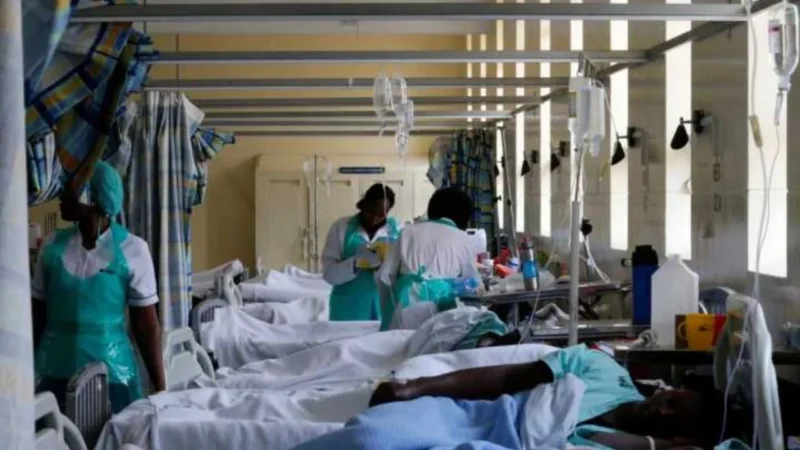The United States Agency for International Development (USAID) has awarded N1.72 billion (about $4.4 million) to support efforts against cholera in Lagos, marking a crucial step forward in addressing Nigeria’s recurrent battle with the deadly disease.
The funding, allocated to various organizations working on water, sanitation, and hygiene (WASH) in Lagos, aims to curb cholera outbreaks that have plagued densely populated communities in recent years.
Cholera remains a severe health challenge in Nigeria, especially in urban centers like Lagos, where overcrowded living conditions and limited access to clean water and sanitation create ideal conditions for transmission. Cholera is a highly contagious disease caused by ingesting water or food contaminated with the Vibrio cholerae bacteria, leading to acute diarrhea, dehydration, and potentially fatal outcomes if untreated.
As of late October 2024, Lagos State recorded 17 confirmed cholera cases, with 15 resulting in fatalities. The Nigeria Centre for Disease Control (NCDC) reports that roughly 350 suspected cases have surfaced across 29 wards in Lagos, amplifying calls for action to prevent further spread. UNICEF has underscored the urgency of improving clean water access and sanitation facilities as essential measures to combat the disease.
USAID’s N1.72 billion grant falls under the Lagos Urban Water, Sanitation, and Hygiene (LUWASH) Activity—a five-year program managed by Chemonics International and partners to bolster WASH infrastructure across the state. The initiative targets several objectives crucial to reducing cholera transmission and promoting sustainable practices in sanitation and hygiene:
- Upgrading WASH Infrastructure: Funds will be directed toward developing reliable water supply systems, improved sanitation facilities, and promoting effective hygiene practices, particularly in cholera-prone areas.
- Community Engagement and Education: USAID aims to raise public awareness on cholera prevention through local campaigns. These efforts will emphasize sanitation practices and safe water consumption to reduce disease risk.
- Strengthening Healthcare Response: The program will improve healthcare capacity to manage cholera cases by training workers and strengthening disease surveillance systems, ensuring rapid response to any outbreak.
- Long-term Sustainability: Beyond immediate cholera response, USAID’s initiative promotes sustainable WASH practices, aiming to build resilience and safeguard communities against future outbreaks.
Beyond combating cholera, USAID’s investment aligns with Nigeria’s wider public health goals and Sustainable Development Goal 6, which promotes universal access to clean water and sanitation. Cholera is particularly dangerous for children under five, who are vulnerable to severe dehydration from diarrheal diseases. This initiative aims to protect children in high-risk areas, potentially lowering child morbidity and mortality linked to cholera.










Join our Channel...